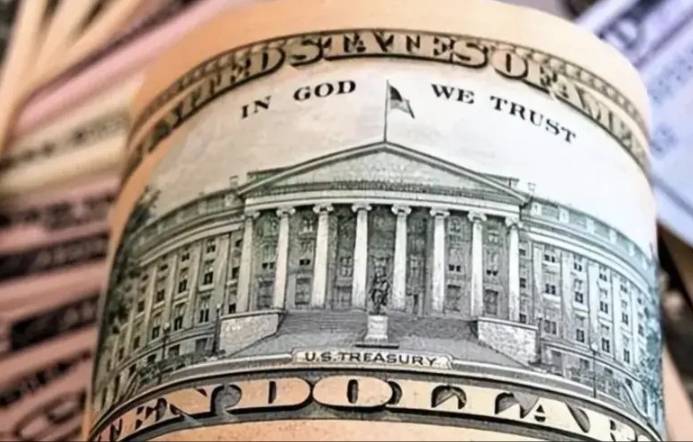Texas Eyes Strategic Bitcoin Reserve
Advertisements
The recent proposal made by Texas lawmakers has sparked considerable interest and debate within the realm of cryptocurrency and public finance. At the heart of this proposal is the idea of creating a strategic Bitcoin reserve within the state, a move that many see as a potential game-changer not only for Texas but potentially for the entire United States. With the proposal put forth by Republican State Representative Giovanni Capriglione, the state aims to accept tax payments, fees, and donations in Bitcoin, eventually allowing it to build and hold reserves of the digital currency for a minimum of five years.
This initiative, announced during an X Spaces event, is notable in that it could position Texas as a key player in the ongoing conversation surrounding cryptocurrency regulation and economic strategy. According to the Satoshi Action Fund, a nonprofit organization supporting Bitcoin advocacy, this proposal is seen as part of a broader effort to enhance Texas's financial stability while simultaneously establishing the state as a leader in Bitcoin innovation. Capriglione emphasized the significance of this proposal by highlighting inflation as a considerable threat to investment, suggesting that accumulating Bitcoin reserves could be tremendously beneficial for the state government.
“The biggest enemy of our investments is probably inflation,” Capriglione stated. He views the establishment of a strategic Bitcoin reserve not just as a financial maneuver, but as a critical step in preparing for future economic challenges. His optimism reflects a growing sentiment among legislators and investors alike, who believe that cryptocurrency could play a pivotal role in modern economies.

Texas holds a crucial position within the U.S. economy, being the second-largest state by economic output. It is also home to a significant portion of the country's Bitcoin mining operations, which have boomed in recent years due to the state's favorable regulatory climate and energy resources. This unique context has laid the groundwork for discussions around the incorporation of cryptocurrency into the tax system. However, it’s essential to note that the current proposal focuses primarily on tax revenue collection through Bitcoin rather than direct purchases of the digital currency.
Capriglione's determination to make the bill as inclusive as possible is evident as he explained his vision: “My primary goal is to make this legislation as broad as possible in scope and as comprehensive as possible in content. The first step is to provide it with some options and flexibility, and based on that, we will push the bill forward. If we can gain the support of other legislators, we will strengthen and enhance it further, allowing it to play a more critical role in regulating and guiding Bitcoin-related tax matters.” This sentiment reflects a strategic approach to legislation that could affect not only Texas but also set a precedent for other states exploring similar opportunities.
Since the recent elections, calls for the creation of a national strategic Bitcoin reserve have intensified. As optimistic investors bet on the potential for the U.S. to establish such a reserve, Bitcoin has experienced a remarkable surge in value, jumping over 45%. This uptick in value has raised questions about the practicality and implications of such a measure, as well as whether the U.S. will take the lead in becoming the first country to adopt a national Bitcoin reserve.
Nevertheless, experts like John Todaro from Needham are cautious about the likelihood of such a reserve being established at a federal level. He remarked, “This is unlikely to happen, but it does help revive market interest,” emphasizing that while significant price increases may not be on the horizon, the excitement breeds optimism within the investment community. Such sentiments highlight the delicate balance between speculative excitement versus practical implementation in the cryptocurrency market.
While Texas is moving forward with its proposal, other states are not standing idly by. Pennsylvania has already made news by being the first state to put forth a strategic Bitcoin reserve bill in November. Currently, up to ten states are in discussions about launching similar legislative efforts. Dennis Porter, CEO of the Satoshi Action Fund, has been a driving force behind these initiatives, collaborating with legislators across various states to craft laws that protect rights associated with Bitcoin, such as mining rights, self-custody, running nodes, and engaging in peer-to-peer transactions.
States like Oklahoma, Louisiana, Montana, and Arkansas have passed laws aimed at securing these rights, demonstrating a growing momentum among state governments to engage with the cryptocurrency phenomenon. The Satoshi Action Fund's involvement in proposing thirty different pieces of legislation highlights the increasing recognition of the importance of cryptocurrency within the fabric of American finance and law. As conversations surrounding Bitcoin and its integration into traditional financial systems continue to gain traction, the work of advocates and lawmakers like Capriglione and Porter may pave the way for broader acceptance and strategic implementation of cryptocurrencies within state and possibly national frameworks.
In conclusion, if Texas successfully establishes its strategic Bitcoin reserve, it may not only influence its own economic landscape but also set a national precedent. As more states explore similar legislative paths, the future of cryptocurrency in the U.S. remains a dynamic topic filled with both potential rewards and pitfalls. With ongoing developments, the eyes of the investment community will surely be watching closely as Texas and other states navigate this complex and evolving digital frontier.
Leave a Comments